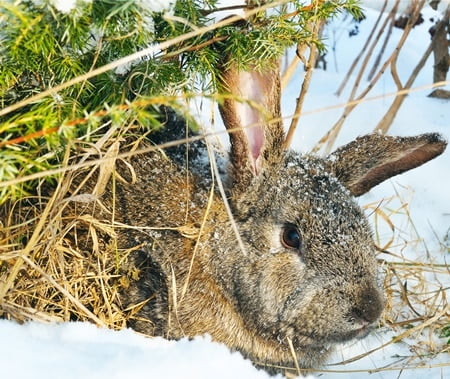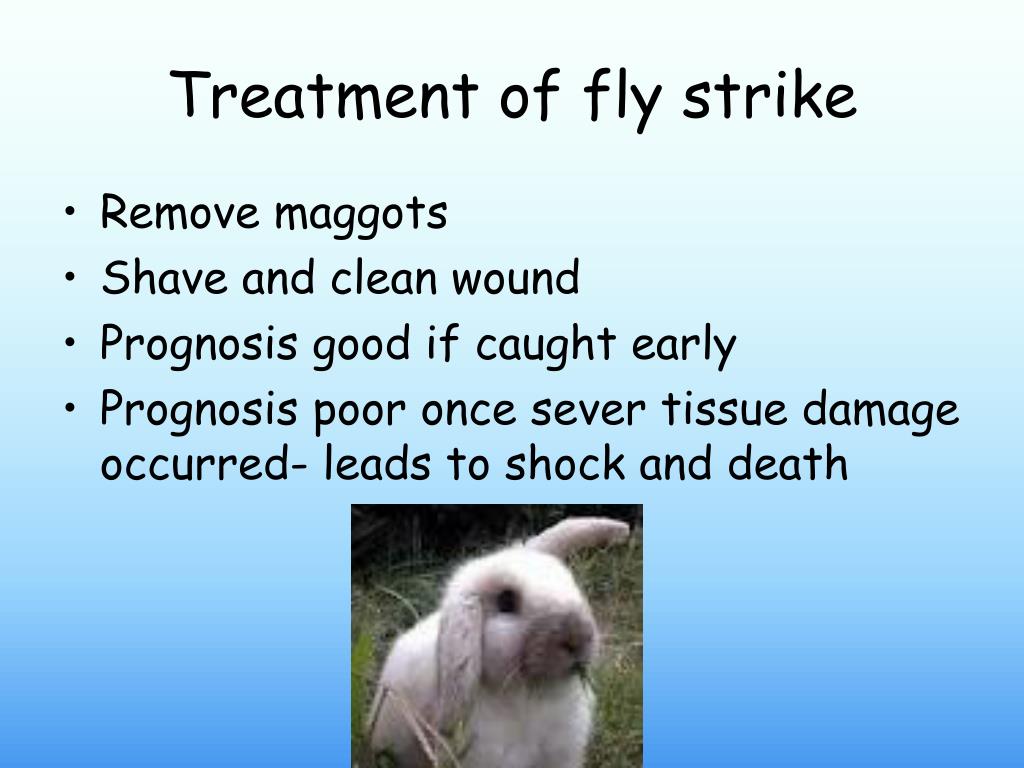

If your rabbit has one of the conditions listed above that makes them more susceptible to flystrike, or they have had flystrike previously we would recommend preventative treatment. Flystrike can cause horrific wounding, shock, and ultimately death if left untreated. If you see any signs of fly eggs or maggots, contact the surgery and be prepared to bring your rabbit to us immediately. Rabbits should be checked at least twice a day for any sign of flystrike as maggots can hatch within 12 hours. It is therefore vitally important to check that your rabbit and his environment is clean and dry. The flies are normally seen in hot and humid weather, and the season is considered to be April to October but flystike can occur at any time of the year.įlies are attracted to any area that is damp or odorous, whether that is urine or faeces on the rabbit, or dirty bedding and bowls.
Fly strike treatment for rabbits skin#
Individuals at greater risk are those who are obese, have dental disease, arthritis, diarrhoea or skin wounds but any rabbit can get flystrike. The common blowfly that we see every summer can be responsible for maggot infestation (known as flystrike) on your rabbit. FleasĬan also affect rabbits so we recommend a monthly spot-on as a preventative measure. Treatment can either be a series of injections or a topical parasiticide.

This parasite doesn’t usually cause rabbits to itch.

Dandruff and a flaky skin may be noticed as some patches of hair loss. Treatment can either be a series of injections or ear drops. A brown crusty exudate is seen in the ears. An infected rabbit will scratch at their ears and may shake their head.


 0 kommentar(er)
0 kommentar(er)
